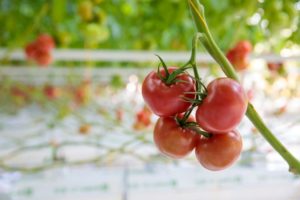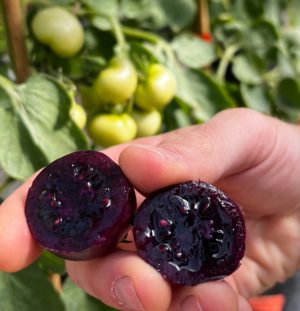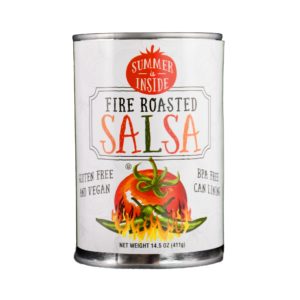Hot Tomato! Spotlight on America’s favorite fruit
It seems everywhere you look this year, there’s something new in tomatoes. This year’s new arrivals offer consumers products with enhanced taste, color and nutrition.

This year’s Fruit Logistica Innovation Award (FLIA) went to the Amela tomato by Granada La Palma from Spain. The tomato gained nearly two-thirds of the votes cast, making it the clear winner of the competition. Visitors were impressed by its intense aroma, high Brix value, and many nutrients and amino acids.
“For a Spanish cooperative like La Palma, this recognition, having had 90 nominations, being nine nominees and having competed with multinational companies means a lot, especially, because the tomato situation is complicated worldwide,” Pedro Ruiz, president of Granada La Palma, said at the time of the award. “It is a great honor to receive such an important recognition at the most important trade show in the world.”
“But it is not only about Amela,” he added. “This prize will also bring recognition to the tomato as a whole, which always had a high value in Europe as a product which exists in every household.”
Amela isn’t the first tomato to have taken first prize at Fruit Logistica. In 2020, Syngenta won the gold Innovation Award for Yoom. Visitors said they were especially attracted to the tomato’s color and taste.
In China, the pink beef tomato Kawaguchi RZ is becoming more popular every day as consumers recognize its unique quality in terms of color, size and taste. In particular, Shanghai consumers are attracted to its perfect pink color, its consistently high Brix value, and its unique flavor.

Kawaguchi RZ is not only an attractive option for consumers, but also for growers, according to Jan Doldersum, manager of Chain & Retail at Rijk Zwaan.
“The market needs the right resistances, yield and uniform size ― and importantly, this variety has all those characteristics too,” he said. “Growers are happy, and in the end that results in happy consumers.”
Rijk Zwaan showcased Kawaguchi RZ at Asia Fruit Logistica from November 2-4 in Bangkok.
Purple is not a color one normally associates with tomatoes, although several purplish-skinned varieties have recently come to market. None, however, have come close to the one developed by Norfolk Plant Sciences in the U.K. The genetically modified, purple-fleshed tomato contains high levels of antioxidants and anthocyanins, levels normally found in fruits such as blueberries and blackberries. The tomato was created by adding two genes from snapdragons that turn on genes that express purple pigment throughout the tomato, not just in its skin.

But the Big Purple Tomato offers more than just rich color. Its developer, Cathie Martin, professor at the John Innes Centre, said it offers longer shelf life, which reduces food waste, as well as great taste and depth of color to food dishes. Recognized for her work in making fruits and vegetables more nutritious, Martin was announced winner of the prestigious 2022 Rank Prize for Nutrition.
In its review, USDA APHIS determined that the tomato is unlikely to pose an increased plant pest risk relative to other cultivated tomatoes. As such, it is not subject to regulations limiting movement of organisms modified or produced through genetic engineering.
There are more than new varieties hitting the market. Processors have also launched new products aimed at keeping consumers excited. Pacific Coast Producers is one such processer. Two years ago, the company launched a line of canned, tricolor, rustic-cut tomatoes aimed at consumers who were looking for fresh new options for salsa, salads and bruschetta. The line was well received by consumers but challenging to produce, explained Tami Iverson, director of marketing and communications at Pacific Coast Producers.
“Growing and picking those products caused a lot of bottlenecks for our farmers and our cannery,” she said. “It was just a very hard product to process because it was such a small pack. Our cannery is meant to produce large quantities, so just having that little niche market in our cannery was a little difficult to maneuver for us.”

Pacific Coast Producers decided to shift efforts towards producing fire-roasted tomatoes in-house. The company had been selling fire-roasted tomatoes for half a decade or more, but fire roasting was done by one of their partner companies, Morning Star. Moving processing in-house has allowed Pacific Coast Producers to expand beyond retail and into food service. It’s also allowed them to introduce new can sizes and fresh options in terms of seasonings, including green chili and garlic.
“Fire roasting is something that we wanted to bring in-house,” said Iverson. “Because that’s a category that was growing quite a bit in organic and conventional tomatoes.”
“This will definitely be a larger pack for us, so we will not have those issues with that niche product,” she concluded.







